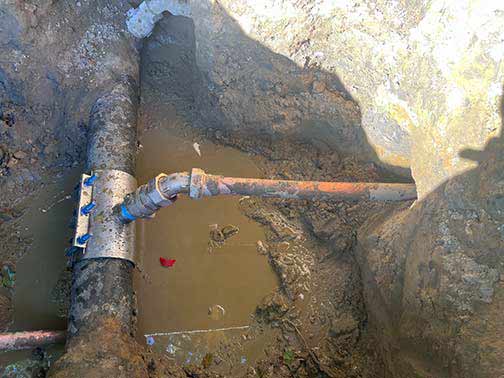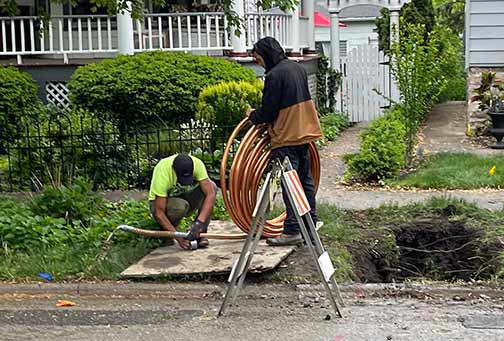
Every homeowner dreads water line problems. But even the most resilient water lines will have problems at some point. These problems occur partly from the natural processes around the pipes.
Soil, tree roots, microorganisms, and rodents interact with underground water pipes in ways that can damage them. These problems appear as leaks, cracks, fractures, corrosion, or pipeline collapse. But these are not the only issues that water lines are subjected to.
The water flowing inside the pipes also creates problems, notes cbcrossroadsrentals.net. Unknown to many homeowners, water is a very corrosive substance. Constant exposure to water will weaken almost any material on the face of the earth. That’s why water is a universal solvent.
Additionally, the water flowing through your water pipes carries many dissolved minerals. These minerals are deposited in small quantities inside the pipe. Over time, these tiny deposits can become buildups. This problem is worse if the water in your area is hard.
The outcome of these processes is that, with time, water pipes will be damaged and become inefficient. If this problem is happening in your home, what should you do? Are you better off repairing the water pipes, or should you replace them?
Replacing versus repairing your water line: 4 factors to consider
Before deciding to repair or replace the water line, you should think about the following:
How old is the water line?
If the line is 25 years old or below, repairing it is the best option. But if it is close to or above 50 years, you should replace it. Water lines become more unstable as they age. Sometimes, a water line does not have to be near the 50-year mark before it starts to decline. That is the case with metal and clay pipes; they become brittle in a relatively short time.
Have there been previous repairs?
The line’s repair history is critical when deciding if you should replace or repair a water line. If the water line has been repaired in the past, especially for the same problem or even if it is a different problem but the same section of the pipe is affected, it is best to replace the line. Another important consideration is the length of time between successive repairs. If the time is short, it is better to replace the main water line.
The water line materials
As already stated, some materials pipe materials break down faster than others – clay and metal pipes. But there are also pipe materials that are no longer legal to use in a water line. To avoid the risk of poisoning, lead water pipes are no longer permitted in many parts of the United States. If your water line is made of lead, now is the best time to replace it.
Cost Comparison
After considering the age of your water line and the frequency of repairs, you want to think of how much it will cost to repair the line. This comparison should consider the immediate cost of repairs, plus the potential cost of future repairs versus the cost of replacing the line. Also, consider the impact of water line issues on your home and quality of life.

Pros and cons of repairing or replacing your water line
Repairing the water line
Pros
- Lower cost: The immediate cost of repairing a water line is going to be lower than the cost of replacing the line.
- Less disruptive: Depending on the repair method and length of the pipe to be fixed, repairing your water line can take a few hours versus days to replace the line.
Cons
- Temporary: Once a water line starts to malfunction, it is only a matter of time before it fails. Fixing the line only delays this reality. It cannot eliminate it.
- Not always possible: In some cases, it is just impossible to fix a water line – it might be too damaged for repairs.
Replacing the water line
Pros
- Long-term solution: By replacing the water line, you will eliminate the risk of water line issues for many years.
- Improved performance: Replacing your water line also improves the functionality of the system and the quality of your water supply.
Cons
- Costly: Replacing a water line is expensive. The upfront cost of this investment may be too much for you.
- Highly disruptive: If you have excavated your yard to replace the water line, expect significant disruptions to your lifestyle.
So, in closing, should you replace or repair your water line? Hopefully, this post has given you all the information you need to make an informed decision on this issue. But before you go, here is one last thing to think about.
Given the potential impact of a water line on your home, it is a good idea to talk to a professional plumber before you decide whether to repair or replace the water line. A professional plumber will help you see aspects of the problem you may have overlooked.


